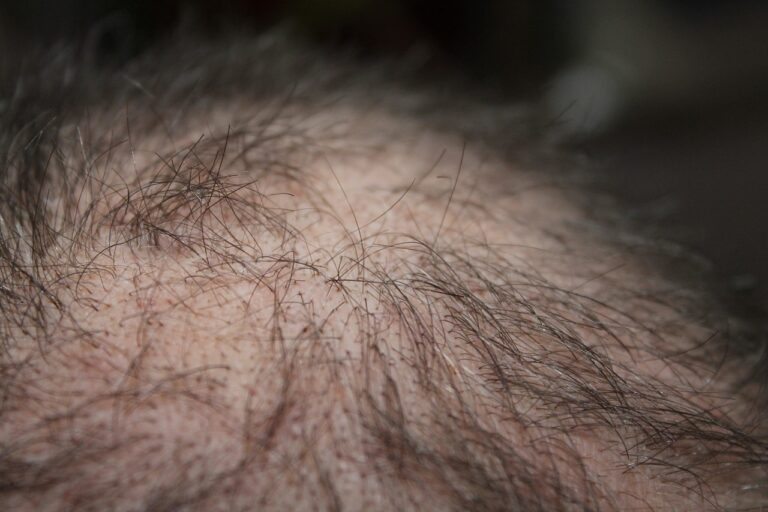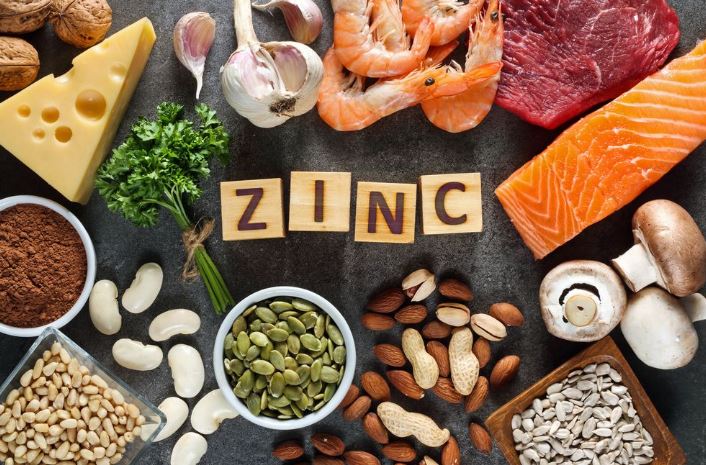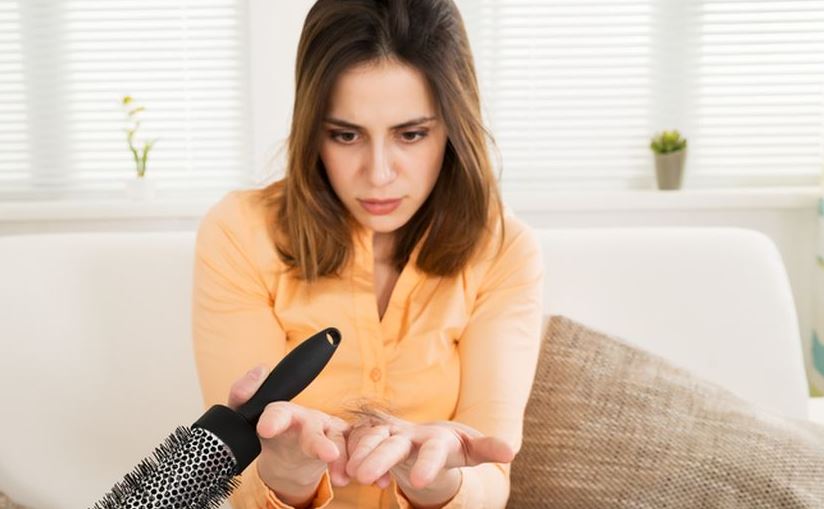How Diet Affects Hair Loss

Alopecia, as it is known in the medical field, is a very common condition that is characterized by hair loss. The causes of this condition can vary, and these known causes include:
- Genetics
- Trauma
- Hormonal Dysregulation
- Hypothyroidism
- Infection
- Chemotherapy
- Tension on the hair
Hair loss can be caused by a number of factors, such as nutritional deficiencies or supplement use that might be related to your diet.
In this article you’ll gain an understanding how diet can affect hair loss.
Micronutrient deficiencies
Hair is composed of two prominent structures – the hair shaft, which you can observe, and the hidden-under-the-skin hair follicle, from which hair grows. To fluff it up and make it longer, it is important to note that the hair shaft and follicle both play an essential role in hair growth.
Hair growth can sometimes be as much as 0.35 mm every day and the scalp can regularly shed around 100 hairs a day. Washing and brushing your hair can contribute to more hair loss.
The activity and sensitivity of hair follicles is remarkable; in fact, they are the most rapidly dividing cells in the body. Given this, it is of no surprise that nutrient deficiencies can have an adverse effect on hair growth.
Iron

Iron deficiency is one of the most common deficiencies in the world, and it can lead to hair loss if left untreated.
This condition is closely related to the type of hair loss known as telogen effluvium (TE), which is a result of the disruption in the regular hair growth cycle. This disruption can lead to a significant amount of hair shedding, which can ultimately result in hair loss.
Researchers are still attempting to better understand how exactly iron deficiency triggers hair loss, but they believe that it may be because the body diverts the iron in the hair follicle to other areas of the body.
According to some studies, those suffering from hair loss have been observed to have much lower iron content in their blood and hair compared to those who do not have hair loss. This may be due to the fact that an iron deficiency can hinder the growth of hair and can even lead to hair loss in some cases.
Vitamin D

Vitamin D isn’t just an important nutrient for your body – it’s necessary for healthy hair, too. Without it, hair follicles are deprived of vitamins and minerals, leading to slowed growth or even breakage.
Several studies have revealed that individuals with conditions such as female pattern hair loss and alopecia areata, an autoimmune skin disease, have low levels of vitamin D.
Research has indicated that, in people with hair loss due to a vitamin D deficiency, taking vitamin D supplements could lead to hair regrowth. A study in 2020, involving a total of 109 participants, revealed that those with hair loss had much lower levels of vitamin D in their blood compared to those without hair loss. In fact, it is estimated that around 80% of those with hair loss had deficient levels of vitamin D.
Iron deficiency showed up in some of those with hair loss, which the researchers took as sufficient reason to suggest that all people experiencing diffuse hair loss should have their vitamin D and iron levels tested.
Zinc

Zinc is an essential mineral with a number of important roles in the body, such as regulating immune function, assisting with protein synthesis, and helping with cellular division.
It’s absolutely essential that hair follicles function properly, and it’s been shown that zinc can help protect them from shrinking and stunted growth, as well as help them recover faster. Not having enough zinc can actually lead to hair loss, which is why studies have indicated that people with hair loss issues often have lower levels of zinc than those without. Those conditions include:
- “Alopecia Areata” also called as patchy hair loss or spot baldness, Alopecia areata is a condition that is caused by the immune system attacking and damaging the hair follicles, and can arise as a result of extreme or prolonged stress.
- “Androgenic Alopecia” also called as Male or female pattern hair loss, Although the pattern of baldness for men and women looks different, they share the same genetic cause. For men, hair loss usually occurs on the top and front of the head. When it comes to female pattern baldness, thinning tends to occur primarily on the top and crown of the head. In the early stages of this form of balding in women, the center hair part tends to widen without affecting the front hairline.
- “Telogen Effluvium” (TE) A reversible and often temporary condition of hair loss brought on by a stressful experience. During this time, a large number of hair follicles enter a resting phase, causing hair to fall out – for some, in abundance. Commonly triggered by surgery, childbirth, and serious illnesses, this condition can be fixed without treatment in most cases and hair often regrows when the stress is gone.
Other nutrients that may affect hair loss
If you want to maintain healthy, strong hair, it is essential to make sure that your body receives all the needed vitamins and minerals along with the ones listed above. Furthermore, research has pointed out that deficiencies in certain nutrients may lead to hair loss:
- Copper
- Biotin
- Vitamin B12
- Folate
- Riboflavin
Remember that hair loss can be caused by a wide variety of factors, and these could be due to either one or a combination of nutrient deficiencies.
If you think that you may be having hair loss due to some sort of nutrient deficiency, it is best to consult a healthcare professional. They may suggest that you get a blood test done in order to check your levels of micronutrients and correctly identify if there is any kind of deficiency.
SUMMARY If your hair is thinning or falling out, it could be a sign that there’s a deficiency of one or more micronutrients, such as iron, vitamin D, zinc, B vitamins, and copper. It’s important to get tested for these deficiencies in order to address the cause of the hair loss.
Calorie and protein restriction
The cells that make up the hair bulb, which is responsible for the production of hair, reproduce quickly, with new cells taking the place of the old cells at a speedy rate.
As a result, it is necessary to make sure the hair is properly supplied with both protein and calories for the follicles to be able to function at their best and for the hair to be able to grow as it should.
To maintain healthy hair, it is essential to keep a balanced supply of energy to the hair follicles. This can be achieved through calorie restriction, however, it may cause hair loss if overdone.
Numerous studies point to the fact that people who eat very few calories are more likely to experience hair loss.
It is possible that in certain very low calorie diets, the restriction of protein intake may contribute to a thinning of the hair and even its loss.
Your hair needs the right building blocks in order to grow properly, and this is provided by amino acids. If your diet doesn’t have enough of the essential protein that your hair needs, then it could cause abnormalities in the growth of your hair, including hair loss and thin, brittle hair.
A very low calorie intake and protein restriction can have a negative effect on health, not only on one’s weight.
It is absolutely necessary to provide your body with the right amount of caloric energy and to include protein-rich nourishment in your diet, so your body can gain the essential nutrients that it needs.
SUMMARY If you are not eating enough calories and proteins found in very low calorie diets, this could lead to an unhealthy amount of hair loss.
Weight loss

Many people who have lost a significant amount of weight can expect to suffer from hair loss as a side effect.
Though this is usually experienced in more extreme cases, such as people who have had bariatric surgery or those who have been following an extreme diet where they were not getting enough calories or nutrients.
You could think that nutrient inadequacy might be the source of hair loss following bariatric surgery, and you’d be right. Although, it’s actually quite interesting; in some cases, it’s actually the stress of the surgery and the subsequent rapid weight loss that causes it.
According to research, if you experience sudden hair loss within three months after having bariatric surgery, it is likely due to the surgical procedure.
Hair loss which takes place 6 months after surgery may be the result of nutrient deficiencies that occur due to malabsorption that can develop as a consequence of the surgery.
To avoid hair loss and other serious complications that can result from bariatric surgery, people must regularly take micronutrient supplements. This is critical in order to protect the health of individuals who have undergone the surgery.
It has been established through research that the sudden weight reduction associated with consuming a very limited calorie count can also cause hair loss.
SUMMARY When you lose weight at a very fast rate, such as from crash dieting or after bariatric surgery, it can cause hair loss.
Supplement use
Taking certain nutrients in supplement form might help the hair to remain healthy and grow at its best rate. However, it is important to note that taking other types of supplements could have a reverse effect, and may even cause hair loss.
If you don’t have any nutrient deficiencies, taking high doses of some specific nutritional supplements could actually be bad for your hair. These supplements include:
- selenium
- vitamin E
- vitamin A
Taking too much vitamin A in the form of supplements can have a damaging affect on the human body, particularly the liver where excess vitamin A is stored.
When the body takes in more vitamin A than the liver can process, the extra will go into circulation, causing the levels of vitamin A in the blood to become too high.
Maintaining optimal levels of vitamin A in your body is imperative for proper hair follicle functioning. Having too much of this nutrient can result in unwanted hair loss, which is otherwise known as hypervitaminosis A. To ensure this doesn’t occur, it is essential to prevent an excessive amount of vitamin A from entering your system.
Excessive consumption of nutrients from food can lead to alopecia. A case report found that a female who ingested between 10 and 15 paradise nuts, which are high in selenium, every day for 20 days experienced severe health issues and experienced complete baldness.
According to healthcare professionals, it was discovered that the patient’s levels of selenium found in her blood were nearly five times the normal range. As a result, doctors conjectured that this could have been the reason for her hair loss.
It’s a concerning fact that many supplements claiming to aid in hair growth contain dangerously high levels of the nutrients they contain, which can lead to hair loss if taken in too great a quantity.
Before you start taking dietary supplements, including herbal supplements, it’s important to talk to a reliable healthcare professional – taking high doses of supplements can cause hair loss. Don’t hesitate to seek expert advice!
SUMMARY If you do not have a vitamin deficiency but you are currently in good physical health but you are at risk for vitamin deficiency, you may take high dosages of certain nutrients, such as vitamin A, vitamin E, selenium, and other nutrients that are typically taken in conjunction with each other.
Other factors that may lead to hair loss
Other factors may also be associated with a risk of hair loss when compared to women with other health conditions:
- smoking
- drinking
- stress
- lack of sleep
A 2013 study revealed an astounding link between lifestyle choices and hair loss. 92 male identical twins were included in the study, which showed that smoking, consuming more than four alcoholic drinks per week, increased caffeine consumption, and increased stress duration were all associated with hair loss.
Interestingly, the study found that hair loss was associated with the severity of infections and that keeping the head clean was associated with hair regeneration.
Smoking has likewise been shown to be linked to both autoimmune conditions alopecia areata and hair loss.
While sleep quality is obviously important, there has been some research that suggests poor sleep quality is a risk factor for alopecia areata.
A 2020 study that included 1,825 women uncovered a surprising link between alcohol consumption, poor sleep, and female pattern hair loss. The results showed that avoiding alcohol and getting sufficient sleep could help to reduce the severity of this type of hair loss.
If you want to reduce the extent of hair loss in your body or your hair, you will want to reduce the second half of the twentieth century tobacco, alcohol, and stress levels.
In combination with a nutritious diet, these actions will help you keep your hair healthy and keep it looking its best.
SUMMARY Smoking, drinking, stress, lack of sleep, and a lack of sunlight may be important factors contributing to your likelihood of experiencing hair loss.
The bottom line
Many factors can affect hair loss, beginning with hormonal dysregulation and systemic infection.
Hair loss can be the result of many factors, such as micronutrient deficiencies, a lack of calories or protein, and the use of high doses of certain dietary supplements. Keep an eye out for these potential causes and care for your hair accordingly!
If you’re noticing a lot of hair falling out, it’s time to get to the root of the problem! Make an appointment with a healthcare professional to find out what’s causing your hair loss and get the treatment you need.
